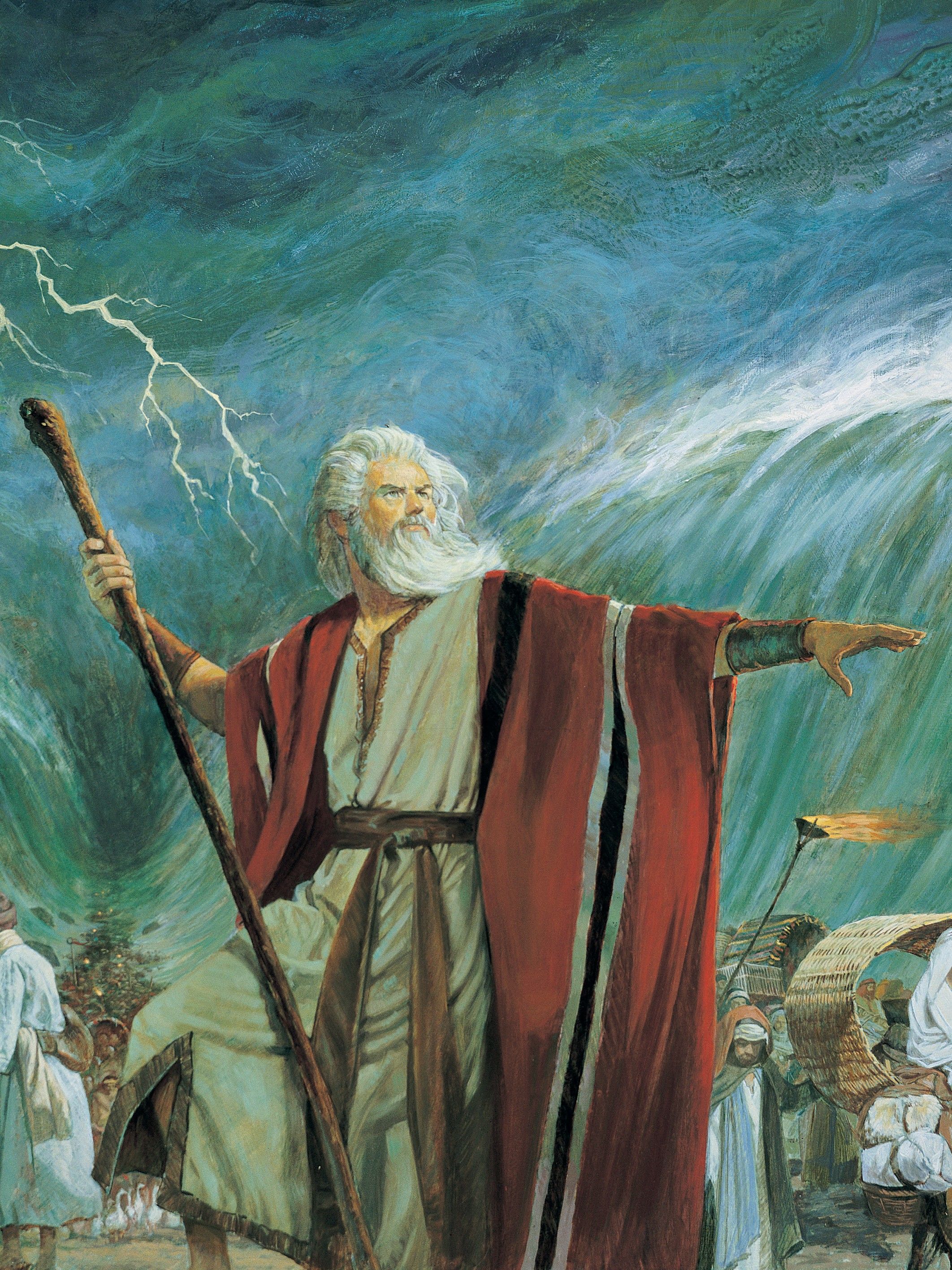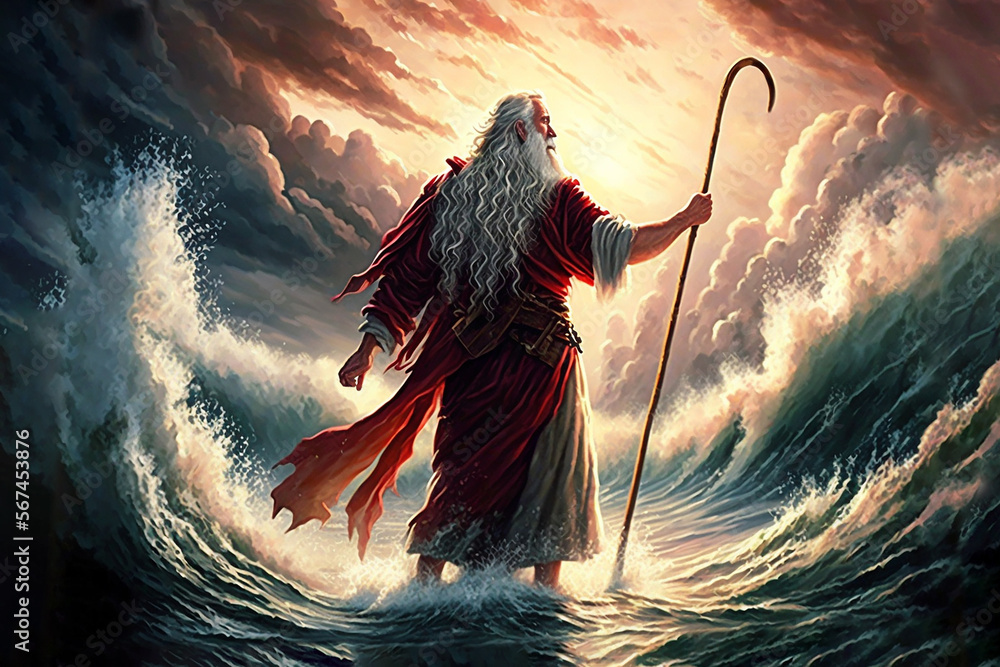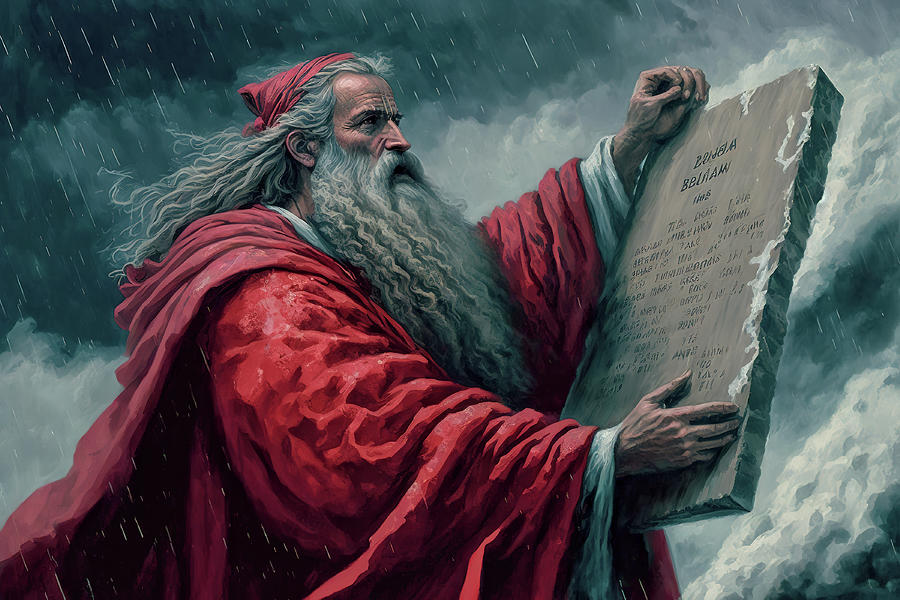There are some stories, you know, that just stick with us through the ages, offering a kind of quiet wisdom, a sort of enduring education for anyone who cares to listen. We often look to figures from the past, sometimes very far back, to find insights into what it means to lead, to persevere, or to simply make a difference. It's almost as if their experiences, their struggles and their triumphs, become a sort of school for us, teaching us things about human nature and faith. This idea of learning from the lives of others, especially those from long ago, really connects with the kind of deep, personal education we get from stories, and so we can look at the enduring impact of a figure like Moses, whose story is still talked about, still thought about, and still, in a way, educating people across many different belief systems.
The story of Moses, a person spoken of in what are called Abrahamic religions, is a truly remarkable one, actually. He's often seen as a very central person in Judaism, someone who showed the Israelites a way out of a very difficult situation, out of being held captive in Egypt. His life, from his earliest days, appears to have been shaped by extraordinary events, moments that seem to defy what we might expect. People who follow Christianity also see him as a very important leader, a prophet, and someone who helped give laws. It's a life, you know, filled with divine moments and what are described as miracles, and these parts of his story still make people think and wonder quite a bit.
What we can learn from his experiences, then, forms a kind of timeless education. It's not about formal schooling in the way we think of it today, but more about the profound lessons that come from a life lived under incredible pressure and with immense responsibility. His early beginnings, the challenges he faced, and the big actions he took, all of these things together offer a rich source of contemplation. We can, for example, consider how his path was laid out, how he came to be a person of such significance, and what qualities he might have shown that allowed him to lead so many. This kind of reflection, honestly, gives us a very different kind of insight, a deeper kind of learning.
- Fr%C3%A9d%C3%A9ric Thi%C3%A9baud
- Khalil Rountree Religion
- Magic Johnson Draft Year
- Rick Ownes Wife
- Michael Consuelos Net Worth
Table of Contents
- The Formative Years of a Leader
- What Shaped Moses's Early Life?
- A Call to Greatness - The Exodus Story
- How Did Moses Guide His People?
- Moses's Lasting Impact on Belief Systems
- Why Is Moses So Important to Faiths Today?
- The Journey to a Promised Place
- What Can We Learn From Moses's Experiences?
The Formative Years of a Leader
Moses, as we hear in these old stories, came into the world in Egypt, and this was during a time when his people, the Jews, were held in a very tough situation, a kind of forced labor. His mom and dad, Amram and Yocheved, were from a family line that was quite well-known, the tribe of Levi. This background, you know, really sets the stage for his whole story. It's a bit like seeing how someone's very first surroundings can shape what they become, what kind of person they grow into. The fact that he was born into such hardship, in a place where his people were suffering, that actually gives a lot of meaning to what he would later do, to his eventual role as a person who brings freedom. It's a very specific start to a life that would become incredibly influential.
- Rolling Stones Lead Singer
- Why Is Police Called 12
- Michael Joseph Consuelos
- Why Did Phil Spector Kill Lana Clarkson
- Gibby Actor
Personal Details and Bio Data
| Name | Moses |
| Parents | Amram and Yocheved (also called Jochebed) |
| Family Group | Tribe of Levi |
| Birth Location | Egypt |
| Main Roles | Prophet, Giver of Laws, Leader |
| Key Action | Led the Israelites out of Egyptian slavery |
| Associated Faiths | Judaism, Christianity, Islam |
| Main Book in Sacred Texts | Exodus (with connections to Genesis) |
| First Major Destination | Mount Sinai |
What Shaped Moses's Early Life?
So, what really shaped Moses during his early life, you might wonder? His name itself, "Moses," means something like "drawn out" or "drawing out," which, in a way, hints at his beginning. He was born to a couple named Amram and Jochebed, both from the tribe of Levi, as we hear in the old writings. This part of his story, his very start, is quite significant because it immediately tells us about his connection to the people he would later lead. It's a bit like understanding someone's roots, how their family and their immediate situation, even when it's tough, can play a big part in who they become. His birth in Egypt, under such difficult circumstances for his people, surely put him on a path that was, you know, very different from what most people experience. This early period, though not fully detailed in terms of his "education" in the modern sense, was undoubtedly a time of profound learning and preparation for the truly massive tasks that lay ahead for him.
A Call to Greatness - The Exodus Story
The story of Moses, as it is told, really gets going in the book of Exodus. But, you know, it actually has roots even further back, in the book of Genesis, with the story of Abraham and his family. That's where a special promise, a kind of agreement, was made with God. Many generations later, we find Moses, the biblical figure, stepping into this long history. He is, by all accounts, the prophet who was chosen to lead the people of Israel out of their forced labor in Egypt. This was a truly enormous undertaking, something that seems almost impossible to imagine. He brought them to the very edge of a promised area, a place they were meant to settle. This whole event, the Exodus, is a central piece of their history and their identity. It's a story that, in some respects, speaks to the power of belief and the idea of freedom.
Moses's immediate aim, after leaving Egypt, was a place called Mount Sinai. This was a very special spot, where, according to the stories, God had first shown himself to Moses. The Hebrew people, after their departure, came to this sacred mountain. They felt a deep sense of power there, a feeling that really gave them strength and encouragement. This part of the journey, you know, was not just about moving from one place to another; it was also about a spiritual gathering, a moment of connection and receiving guidance. It's a bit like a turning point, where the experiences of the past lead to a new understanding and a path forward. The events at Sinai are, in a way, a further part of the "education" of both Moses and his people, showing them a particular way to live.
How Did Moses Guide His People?
So, how did Moses actually guide his people through such a difficult and long journey? He was, quite simply, a person of great influence, a leader, and someone who helped set down laws for them. The stories say he was a prophet, meaning he spoke for God, and he was the one who received the rules for living, often called the Ten Commandments, which gave them a way to organize their lives and their community. This was a massive undertaking, really, to take a group of people who had been enslaved and give them a structure, a sense of purpose, and a direction. It was more than just leading them physically; it was about shaping them as a group, giving them a shared identity and a set of principles to live by. His guidance, you know, wasn't just about telling them where to go, but about teaching them how to be a people, how to relate to each other and to their beliefs. That, in itself, is a truly profound form of "moses ingram education," if you think about it, a kind of schooling for a whole nation.
Moses's Lasting Impact on Belief Systems
Moses, whose name is known in various forms like Mōysēs in older Greek texts and Mūsā in Arabic, is a person who holds a very special place in what are called Abrahamic religions. He was, as we have heard, a religious leader, someone who helped make laws, and a prophet. He's often thought of as the founder of Israel, not just a physical nation, but a people with a shared belief and way of life. His influence, you know, stretches across Judaism, Christianity, and Islam, which is quite something. It shows how one person's story can resonate so widely, how it can shape the thinking and practices of so many different groups of people over thousands of years. This enduring presence, this constant reference to his life and teachings, points to a truly powerful and lasting effect on human thought and belief. It's a bit like a foundational lesson that keeps on giving, always there to be revisited and considered.
The stories about Moses have been passed down through generations, and they continue to be a source of guidance and inspiration. The fact that he is claimed by Judaism, Christianity, and Islam really highlights his broad appeal and his significance. People in these faiths look to him for different reasons, perhaps, but they all see him as a very important figure who played a key part in their spiritual history. His role as a lawgiver, for example, shows how he helped establish a moral and social order that has influenced countless lives. This continued relevance, this way his story keeps speaking to people, is a testament to the depth of his contribution. It's a clear example of how the experiences and actions of one person can, in fact, provide a kind of ongoing "moses ingram education" for many different communities, teaching them about faith, justice, and community.
Why Is Moses So Important to Faiths Today?
Why, then, is Moses still so important to so many faiths today, you might ask? It seems to be because his story touches on some very deep and universal human experiences. He was, as we've said, a religious leader, someone who helped create laws, and a prophet. These roles, you know, are not just historical titles; they represent actions that shaped entire cultures and ways of thinking. He is seen as the one who led a people from a situation of great difficulty to the edge of a new beginning. This idea of liberation, of receiving divine guidance, and of forming a community based on shared rules, these are all very powerful themes that still resonate. People find meaning in his journey, in his struggles, and in his connection to something beyond himself. It's a bit like his life offers a blueprint, a kind of fundamental "moses ingram education" about what it means to seek freedom, to follow a higher calling, and to build a just society, lessons that, as a matter of fact, feel as relevant now as they ever were.
The Journey to a Promised Place
According to the biblical accounts, Moses was the prophet who guided Israel out of their forced labor in Egypt. He brought them, eventually, to the very edge of a place that had been promised to them. This was a long and often difficult passage, filled with challenges and moments of doubt. But through it all, Moses remained at the forefront, leading the way. This journey, you know, was not just a simple trip from one spot to another; it was a transformative experience for an entire people. They learned about patience, about perseverance, and about relying on something greater than themselves. Moses is often thought of as Israel's founder, which means he didn't just lead them physically, but he helped establish their identity, their purpose, and their shared history. This act of founding, of shaping a collective identity, is a truly significant part of his lasting legacy, a kind of deep-seated "moses ingram education" for a whole nation about what it means to be a people.
The story of Moses's life, as we gather from these old writings, is considered one of the most important religious narratives in all of world history. He is a figure claimed by Judaism, Christianity, and Islam, which shows just how widely his story has spread and how deeply it has affected people's beliefs. His life, marked by encounters that are described as divine and by what are called miracles, still makes people ask many questions. These questions, you know, are not just about historical facts; they are about faith, about leadership, about human resilience, and about the nature of the divine. The fact that his story continues to spark such thought and discussion, that it still prompts people to seek deeper meaning, really points to its enduring power. It's a bit like a never-ending lesson, a constant source of learning for anyone who engages with it, offering a kind of profound "moses ingram education" that goes beyond any formal classroom setting.
What Can We Learn From Moses's Experiences?
So, what can we really learn from Moses's experiences, then, if we think of his life as a kind of "moses ingram education"? His story, in a way, is a powerful lesson in leadership, especially in times of extreme difficulty. He was called upon to lead a people who were suffering, to guide them through a wilderness, and to help them establish a new way of life. This required immense courage, a deep sense of purpose, and an ability to connect with something beyond himself. We can consider how he handled challenges, how he communicated, and how he stayed true to his mission even when things seemed impossible. His life also teaches us about the idea of receiving guidance, about the importance of rules for a community, and about the pursuit of freedom. It's a very human story, too, with moments of doubt and struggle, which makes it, you know, even more relatable. These aspects, honestly, provide a rich source of insights into human nature and the power of belief, offering a kind of practical wisdom for anyone who looks for it.
Related Resources:



Detail Author:
- Name : Prof. Dallas Turner V
- Username : maia73
- Email : mcdermott.jasmin@stroman.org
- Birthdate : 1999-08-08
- Address : 11522 Lebsack Trace Apt. 979 New Tressieborough, OK 85249-2069
- Phone : (425) 361-2953
- Company : Mayert Group
- Job : Psychiatric Technician
- Bio : Consequatur expedita numquam omnis. Reiciendis doloribus est sed suscipit provident iste assumenda.
Socials
tiktok:
- url : https://tiktok.com/@ccrona
- username : ccrona
- bio : Ipsum tenetur dignissimos sit voluptatem architecto tempora qui.
- followers : 2660
- following : 104
instagram:
- url : https://instagram.com/christine_crona
- username : christine_crona
- bio : Neque officiis molestiae est consequuntur et et consequatur enim. Distinctio qui et soluta sed in.
- followers : 5489
- following : 2593